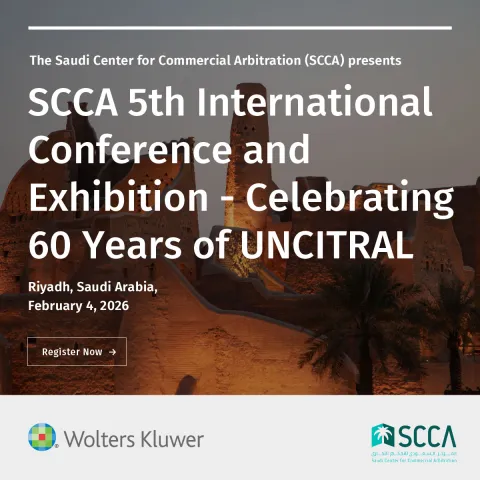Navigating Sovereign Immunity in the Enforcement of Investment Awards after CC/Devas v. India
October 13, 2025
On 17 April 2025, the London Commercial Court rendered a watershed judgment in CC/Devas (Mauritius) Ltd and Others v. India, finding that the ratification of the Convention on the Recognition and Enforcement of Foreign Arbitral Awards (“NYC”) does not amount, on its own, to a waiver of State immunity against the enforcement of arbitral awards (for previous coverage: here, here and here).
Notably, Judge Blair ruled out that being a contracting Party to the NYC qualifies as a submission to the British courts’ jurisdiction by a “prior written agreement” in accordance with Section 2(2) of the 1978 State Immunities Act (“SIA”) and, particularly, as a waiver by international agreement. Therefore, as for the enforcement of the awards in Devas v. India (Award on jurisdiction and merits and Award on quantum, the “BIT Awards”), the respondent State had not submitted in advance to the adjudicative jurisdiction of British courts.
On the other hand, the question as to whether India had waived its immunity by submitting the dispute to arbitration under the applicable bilateral investment treaty (“BIT”) within the meaning of section 9 of the SIA (the so-called arbitration exception) was deferred to a later stage of the proceedings, since a request for setting aside the BIT Awards is currently pending before Dutch courts.
Building on the arguments offered in this Blog, the post frames the London Commercial Court’s decision within the broader landscape of sovereign immunity in view of the two main legal frameworks for the recognition and enforcement of investment awards, namely the NYC and the Convention on the Settlement of Investment Disputes (“ICSID Convention”). Arguably, while the case law on the former is scattered and chaotic like a dog biting its tail, there seems to be wider agreement regarding the latter.
Enforcement of Devas Awards: The Spectrum of Approaches Under the New York Convention
The Devas investors saga is emblematic of the fragmented case-law on the enforcement of investment awards under the NYC, particularly with regard to the defence of State immunity. Crucially, India sought to rely on this defence in several jurisdictions, besides the United Kingdom, which resulted in an increasingly incoherent body of decisions. The most recent are: (i) Republic of India v. CCDM Holdings (2024 QCCA); and (ii) Republic of India v. CCDM Holdings, LLC & Ors. [2025] FCAFC 2.
(i) Republic of India v. CCDM Holdings (2024 QCCA)
On 4 December 2024, the Quebec Court of Appeal in Republic of India v. CCDM Holdings confirmed that India had waived its immunity from enforcement by consenting to arbitration under the applicable BIT, in accordance with the State Immunity Act (the “Canadian SIA”).
Crucially, even if India’s consent to arbitration was – on its own – a waiver of immunity, the Canadian judges also relied on the NYC, particularly Article III, which provides that:
“[e]ach Contracting State shall recognize arbitral awards as binding and enforce them in accordance with the rules of procedure of the territory of where the award is relied upon”.
According to the Quebec Court of Appeal, therefore, the ratification of the NYC, combined with an agreement to arbitrate (whether by contract or by treaty), amounted to a waiver of immunity within the Canadian SIA. In other words, the fact that the respondent State was a contracting Party to the NYC contributed – despite arguably not being sufficient in and of itself – to the finding that it had waived its immunity from adjudicative jurisdiction.
Furthermore, the Quebec Court of Appeal reversed a previous decision and found that a pre-judgment attachment of State assets can be authorized without requiring a final ruling on sovereign immunity. Some argue that through this decision, Canada opened its case-law to a “double waiver” of immunity, namely to the idea that when a State waives its adjudicative immunity, it also automatically waives immunity from execution (see here). However, Canada’s recognition of an “automatic execution” of State assets seems to be confined to pre-judgement conservatory measures.
(ii) Republic of India v. CCDM Holdings, LLC & Ors. [2025] FCAFC 2
A month later, in Republic of India v. CCDM Holdings, the Full Court of the Federal Court of Australia (“Full Court”) dismissed an application for the recognition and enforcement of an investment award against India. In this landmark judgement, the Full Court reversed the decision by the primary judge, who had found that the respondent State, being a contracting Party to the NYC, could not avail itself of the sovereign immunity defence in recognition and enforcement proceedings.
The Full Court found that the so-called commercial reservation entered by India under the NYC prevented Australian judges from enforcing non-commercial awards, such as those concerning foreign investments. While the Federal Court did not definitively rule on whether the ratification of the NYC can be deemed a waiver of immunity, it nonetheless found that: “[t]here is much to be said in support of a conclusion that by ratifying the Convention India waived immunity in respect of awards that are within India’s commercial reservation” (para. 72).
One can argue, in this respect, that the finding of the primary judge is still valid: the ratification of the NYC constitutes a waiver by international agreement to sovereign immunity, despite being limited to those awards not excluded by the commercial reservation. If so, the Full Court has mapped Australia as one of the (few) jurisdictions considering the ratification of the NYC and waiver by international agreement.
Enforcement of ICSID Awards before the English Courts
Unlike the NYC, the ratification of the ICSID Convention – with its own rules on the enforcement of investment awards – has been generally recognised as a waiver of immunity by international agreement in several jurisdictions (see here, here, here, here). Domestic courts have interpreted Articles 54 and 55 of the ICSID Convention on the recognition and enforcement of ICSID awards as a submission to the adjudicative jurisdiction of all contracting Parties, being only immunity from execution expressly preserved under Article 55 of the Convention itself.
The United Kingdom is no exception in this respect, having its courts followed the mainstream approach, as recently confirmed by the ruling in Infrastructure Services Luxembourg S.À.R.L. v. Kingdom of Spain and Border Timbers Ltd v. Republic of Zimbabwe [2024] EWCA Civ 1257. On 22 October 2024, the English Court of Appeal handed down a judgment in two joined cases, dismissing the appeals brought by Spain and Zimbabwe against the recognition and enforcement of two ICSID awards.
When dealing with the question of sovereign immunity, the Court of Appeal concluded that both respondent States had submitted to the jurisdiction of English courts merely by ratifying the ICSID Convention, a “prior written agreement” within the meaning of section 2 of the SIA. Notably, Article 54 of the ICSID Convention was deemed to be “an express and sufficiently clear” waiver of immunity (para. 84 ff.). Therefore, for the purposes of English law, the ratification of the ICSID Convention amounts to a waiver of immunity vis-à-vis adjudicative jurisdiction.
Interestingly, however, the Court of Appeal dismissed the possibility of extending this reasoning to the enforcement of investment awards sought under Article III of the NYC as the relevant provisions “are not worded identically” (para. 102). Indeed, Article III provides for enforcement “in accordance with the rules of procedure” of the State in which it is sought. Sovereign immunity is a procedural rule under English law, and thus “it may be that Article III preserves immunity on its own terms” (para. 102).
Conclusions
The different outcomes of the domestic proceedings in the United Kingdom, Canada, and Australia highlight the patchiness and uncertainty of the recognition and enforcement of investment awards under the NYC, when the respondent State resorts to the defence of sovereign immunity.
One cannot deny that recognising the ratification of the NYC on its own as a waiver of State immunity means to override a fundamental prerogative of State sovereignty, i.e., jurisdictional immunities. In our view, this can never be done lightheartedly.
Quite the opposite, while such an outcome is certainly arbitration-friendly, there are good reasons to question the soundness of this approach with respect to investment awards. First and foremost, it shall not be overlooked that the NYC was designed as an instrument to facilitate the recognition and enforcement of commercial awards for private economic actors, which is a major difference from the ICSID Convention that governs investor-State arbitration. This is all the more relevant if one considers that the NYC is silent on issues of immunity, while the ICSID Convention explicitly regulates State immunity, even if only in a handful of articles.
Accordingly, in hindsight, the recent alignment in the case-law of domestic courts concerning the recognition and enforcement of ICSID awards does not come as a surprise. Conversely, most jurisdictions (e.g., the United Kingdom) have – rightly, in our view – excluded that the ratification of the NYC trumps immunity, rather focusing on the waiver by the arbitration agreement (see here). Few jurisdictions (e.g.Australia), instead, seem to have opted for a robust enforcement-friendly approach at the questionable expense of sovereign immunity. Indeed, the abovementioned elements run against the conclusion that the ratification of the NYC entails a waiver of immunity.
It remains to be seen where the London Commercial Court will finally stand with respect to the Devas saga, particularly in view of Judge Blair’s claim that he did not “in any way intended to contradict the enforcement friendly aspect” of the NYC (para. 85). This might bring the Court to follow in Canada’s footsteps, thus considering whether ratification of the NYC combined with a valid arbitration agreement can amount to a waiver of sovereign immunity.
You may also like











